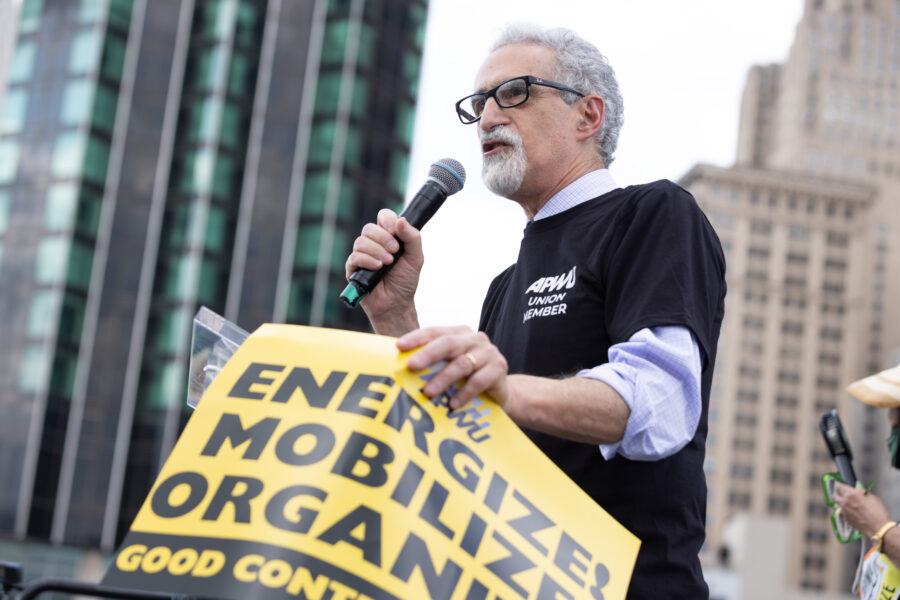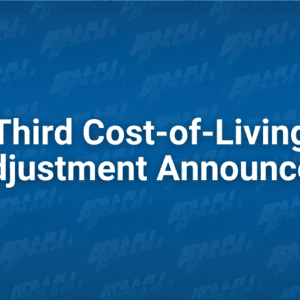August 13, 2025
Newsweek Op/Ed: The U.S. Postal Service Is Not for Sale

APWU President Mark Dimondstein penned an opinion piece for Newsweek in honor of the 250th anniversary of the U.S. Postal Service. Read the piece reprinted below, or read and share the piece from Newsweek:
https://www.newsweek.com/mail-workers-union-leader-us-postal-service-not-sale-opinion-2110501
Mail Workers Union Leader: The U.S. Postal Service Is Not for Sale | Opinion
Growing up near the Boston Post Road, I never appreciated that I had the early postal system to thank for this old thoroughfare between New York and Boston. Nor did I know that I would one day proudly earn a living as a postal worker and spend 12 years as the elected leader of my union of postal workers. As the U.S. Postal Service celebrates its 250th anniversary, my experience lends a unique perspective on its past, present, and future.
Older than the country itself and enshrined in the Constitution, the Postal Service reflected a then-radical commitment to the free exchange of ideas and information. The Founding Fathers relied on the Postal Service to organize the Second Continental Congress and to circulate the Federalist Papers. Later, the abolitionist movement agitated and organized against the evils of slavery largely through mailed newspapers and correspondence.
The Postal Service has driven the nation’s development, from roads, railroads, and civil aviation to the Sears mail-order catalog to Amazon‘s e-commerce.
What is today referred to as the USPS has always changed and adapted to the times. Vote-by-mail first gave Union troops access to the ballot box during the Civil War and today it is the preferred method of voting for tens of millions of people. Rural Free Delivery, permanently implemented in 1902, linked isolated rural communities with the rest of the country. The Postal Savings Bank, established in 1911, softened the blow of the Great Depression for millions, before being killed by the big banks in 1967.The e-commerce revolution would be unimaginable without the USPS’ unrivaled network. For generations, the law has required universal and affordable postal service to every community. While private shippers maximize profit, the public USPS remains the low-cost anchor of a $1.3 trillion mailing industry, to the benefit of 169 million households and businesses that receive their mail six, and sometimes seven, days a week.
The USPS has led the way with its fair hiring practices, good living-wage union jobs, and as the largest civilian employer of veterans. Workers from all walks of life earn equal pay for equal work.
The USPS remains a true symbol of the strength of the public good and is prized by the vast majority of Americans, with dedicated postal workers among the most trusted public servants in the country.
Yet, as we celebrate this historic milestone, this national treasure is facing threats to its very existence.
The White House is openly advocating for postal privatization, an idea promoted for decades by the Heritage Foundation. As Elon Musk rampaged through government, he declared that selling off the USPS was a priority. And now the Postal Board of Governors has shamefully selected a new postmaster general—David Steiner—straight from competitor FedEx, an obvious and glaring conflict of interest.
If the privatizers succeed at selling off this public institution, in whole or in part, Wall Street investors and postal competitors may celebrate, but postal customers—businesses large and small, households urban and rural—will suffer. In February, Wells Fargo Advisors put in writing what is usually whispered by the private shippers and their allies in Washington: privatization of the USPS would be a boon to UPS and FedEx, and increase parcel prices by up to 140 percent. The Wells Fargo memo also said that many local post offices would be sold off and closed or, as the big bank terms it, “harvested for value.”
Want to know what a privatized mail service looks like? Look no further than the Royal Mail, the United Kingdom’s historic postal service, now owned by a Czech billionaire, where a first-class letter costs two dollars. In Portugal, privatization has resulted in three days a week delivery.
The USPS is a successful example of government “of, by, and for the people.” It belongs to us, the people, and not to Wall Street. Through new and expanded products, e-commerce package growth, and better staffing, the USPS can remain a vital public service for generations—if it can survive the vultures who wish to privatize.
The following inscription, carved into white granite on the Smithsonian Postal Museum, is a powerful reminder of why it’s so important to maintain the USPS as a public service, especially as Americans commemorate this important anniversary:
Messenger of Sympathy and Love
Servant of Parted Friends
Consoler of the Lonely
Bond of the Scattered Family
Enlarger of the Common Life
Carrier of News and Knowledge
Instrument of Trade and Industry
Promoter of Mutual Acquaintance
Of Peace and Goodwill Among Men and Nations
Happy anniversary to the people’s Post Office. The U.S. Mail is not for sale, nor should it be.
Mark Dimondstein



